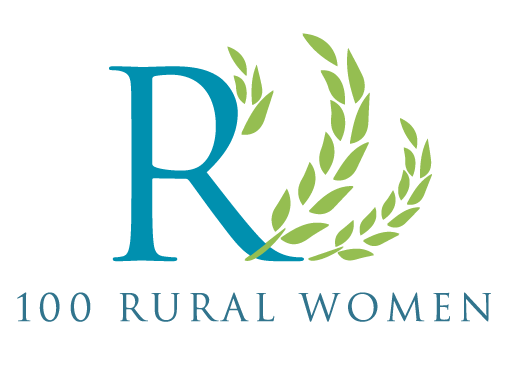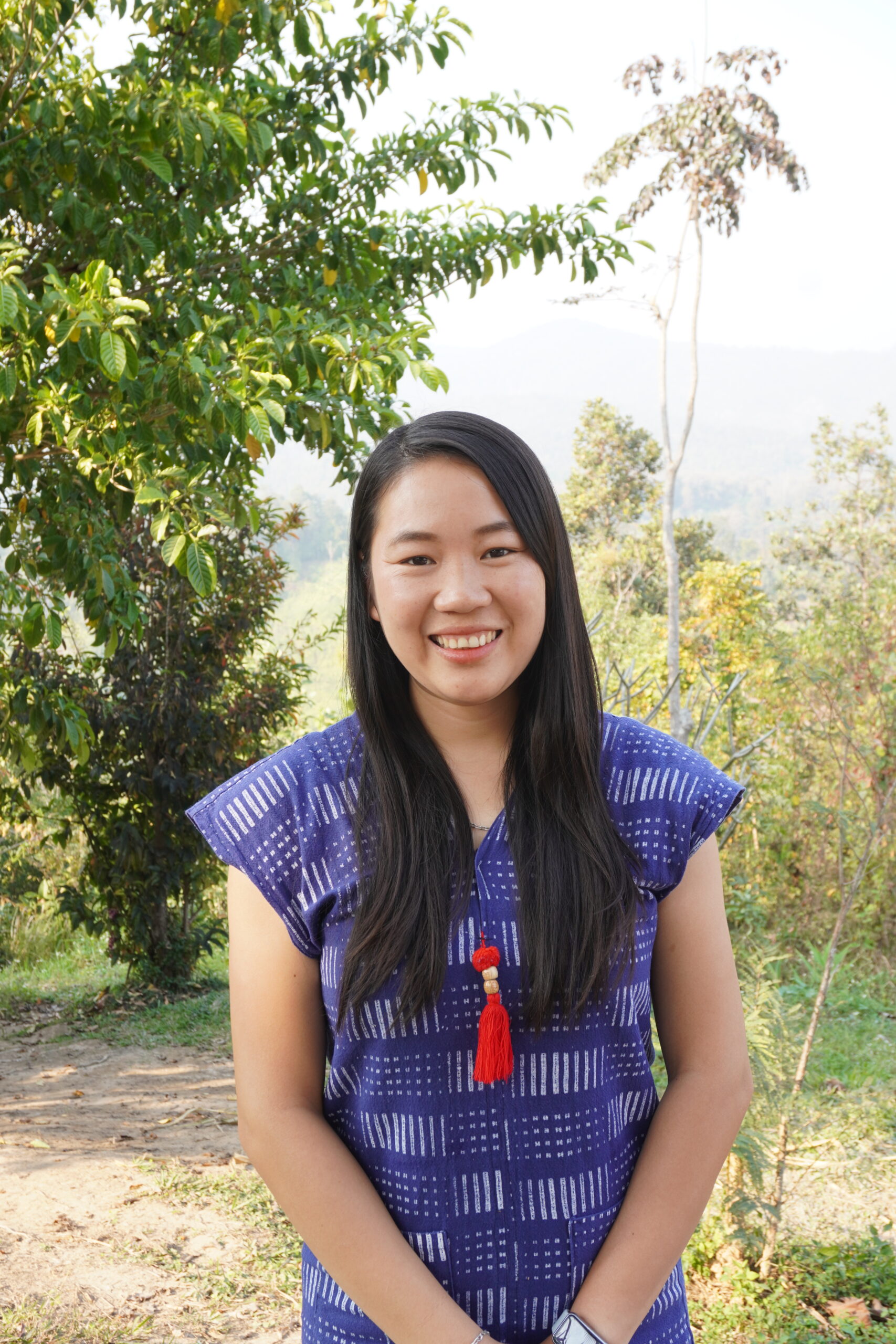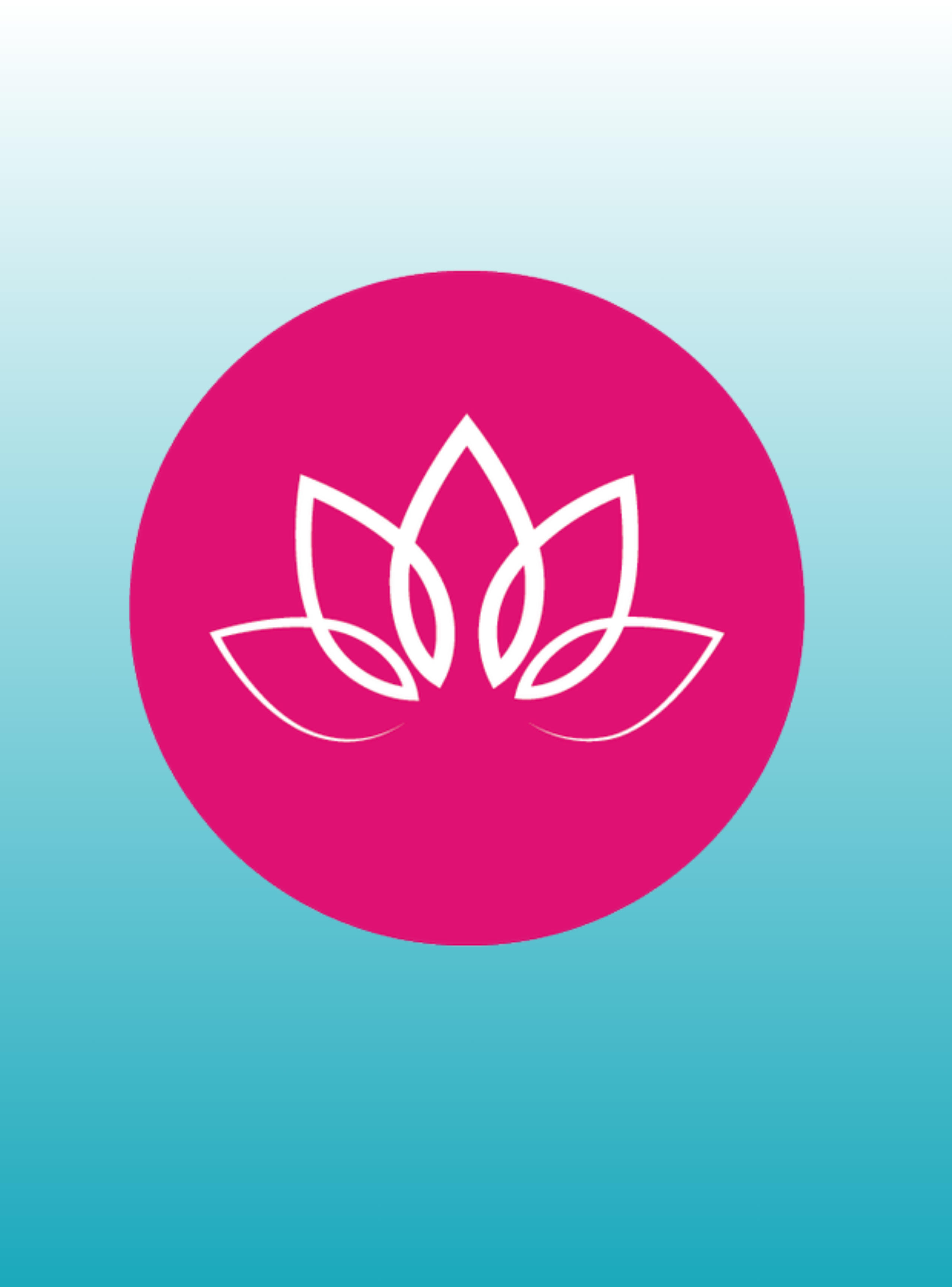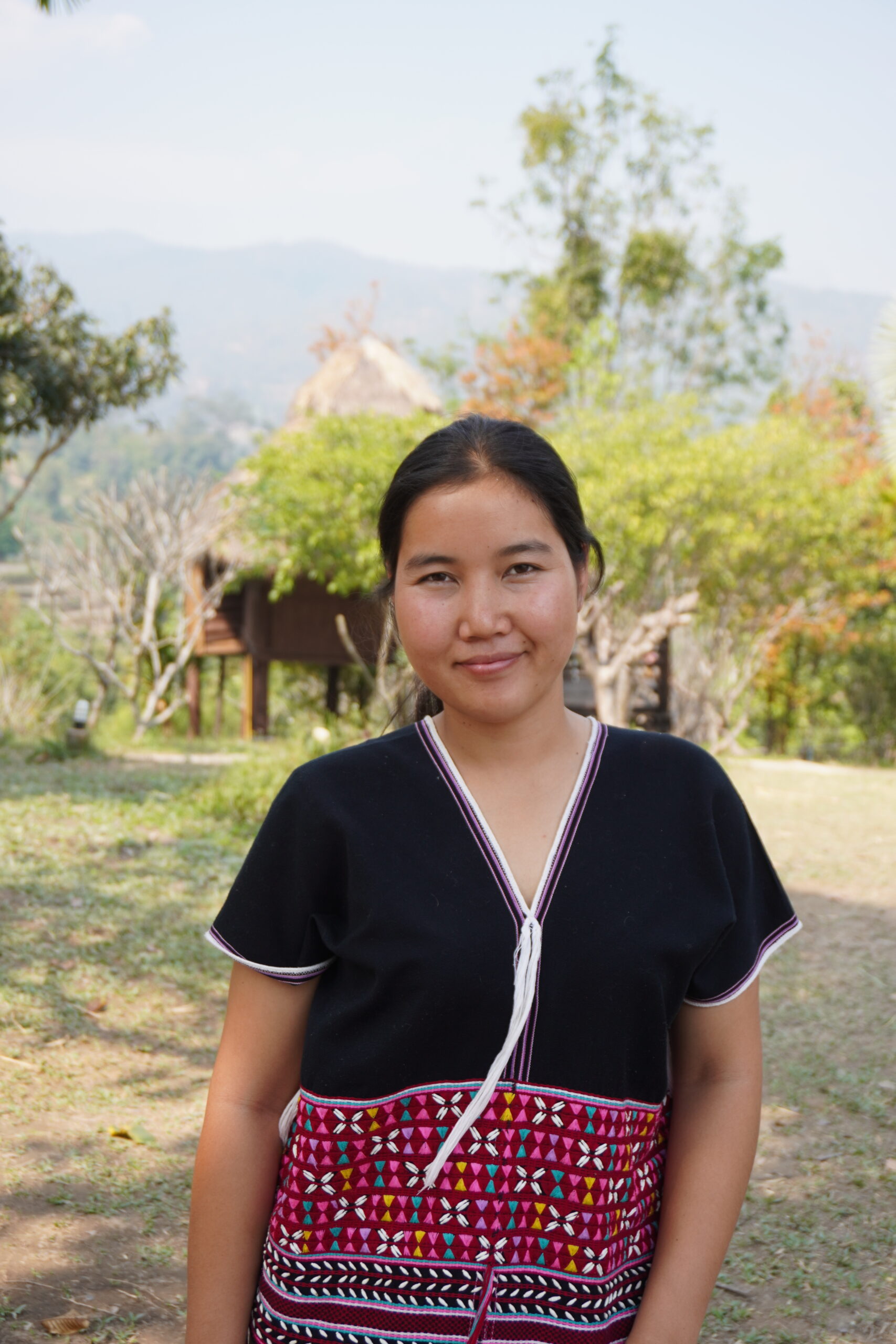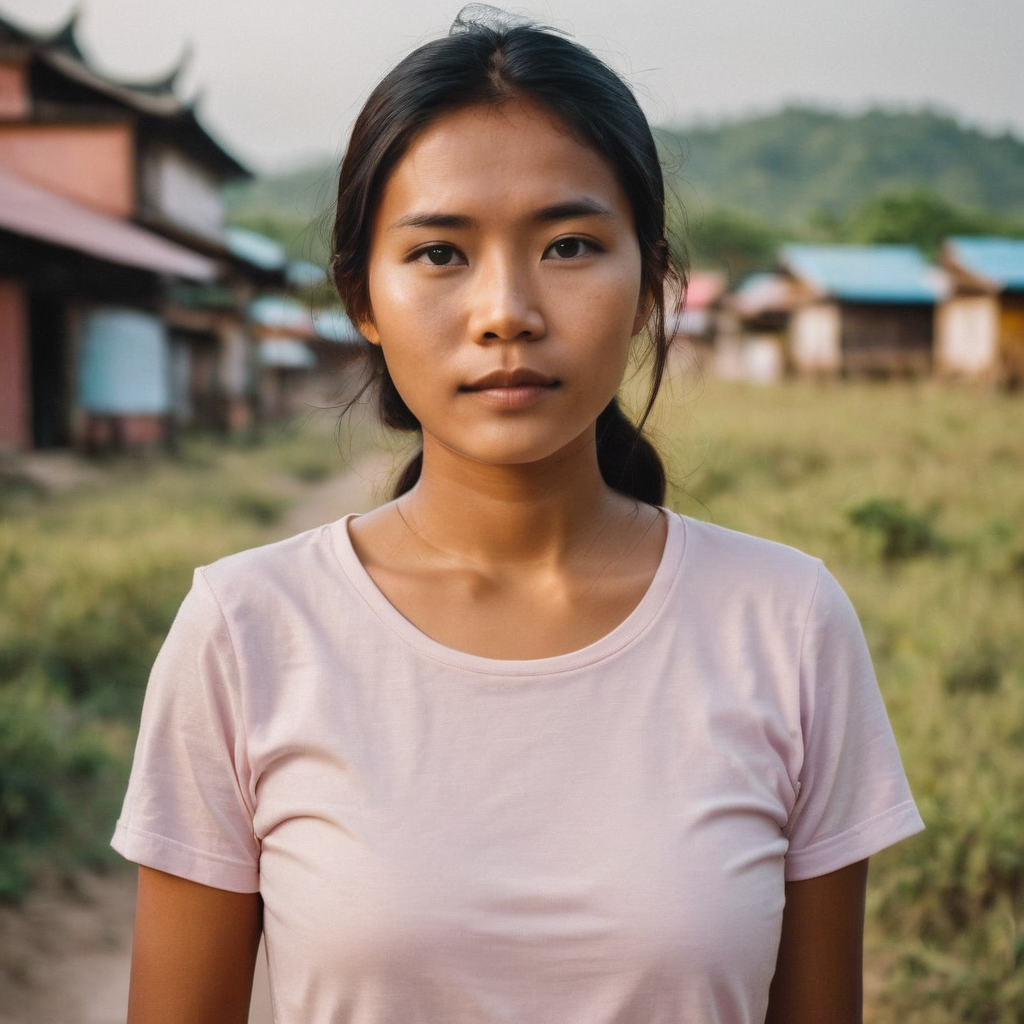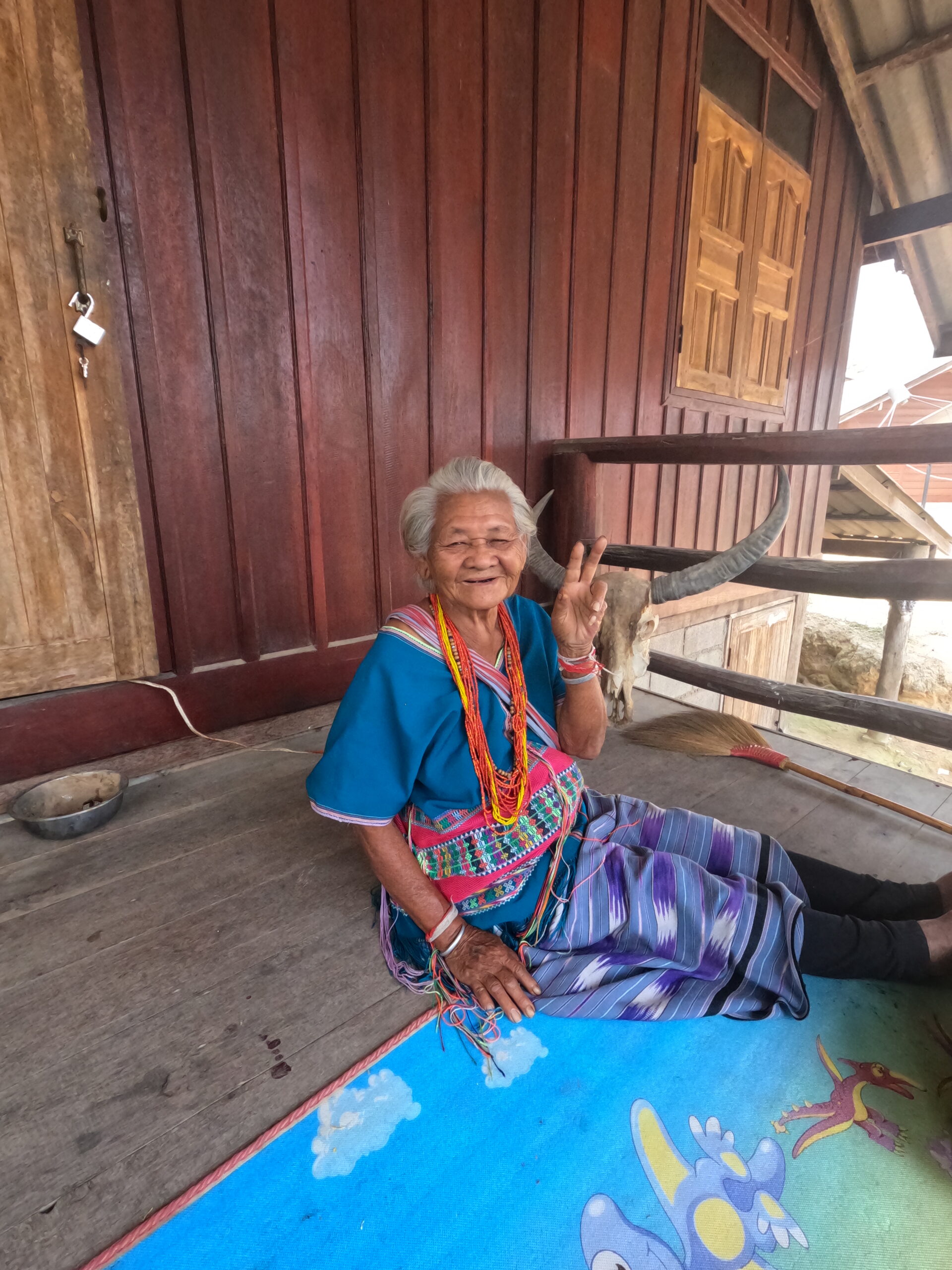“In Thailand, there were a few organizations that focus on rescuing girls but there aren’t any that focus on prevention and prevention is so important.”
Alexandra Pham is the founder of Daughters Rising and Chai Lai Orchid. Our staff member Alexa had the opportunity to sit down with her in January of 2023 to speak about how things got started.
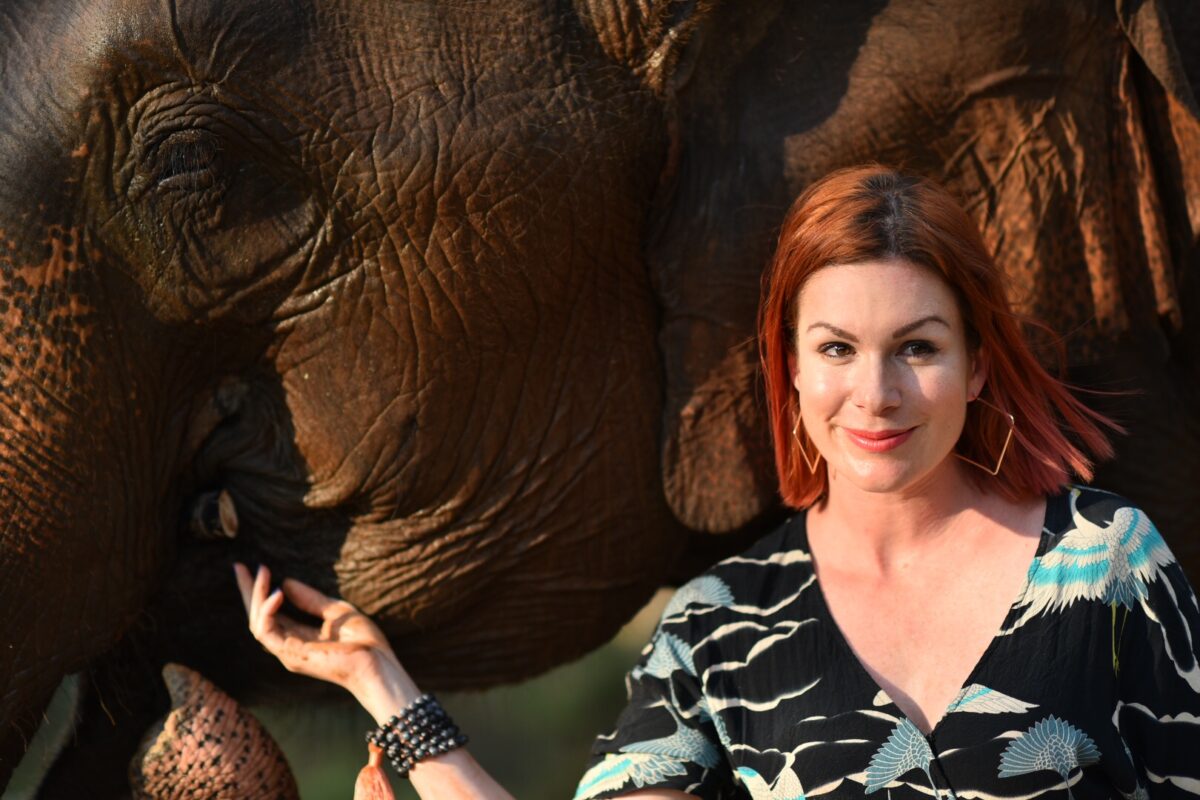
What’s your background?
I’m originally from the states, from New York. I also lived in Florida and I moved to Thailand 9 years ago and I’ve been here since. I’ve only been back twice to visit.
What were you doing before moving to Thailand?
Before moving to Thailand I was volunteering with different organizations in New York. One was a safe house and orphanage in Nepal. I supported their director in New York and also volunteered fund raising for other anti-human trafficking organizations.
What did you study?
I studied film production, actually.
So how did you end up in this kind of non-profit work?
I studied film production because I wanted to do something that had a social impact. I was interested in like, documentary work, social justice issues, conflict journalism. But then I ended up working and just trying to make ends meet working 14 hours a day on mostly commercial films, music videos, ads. Things I wasn’t really passionate about.
What led you to want to start this non-profit?
Hannah and I started it because we just saw a gap that needed to be filled. For example, in Thailand, there are a few organizations that focus on rescuing girls but there aren’t any that focus on prevention and prevention is so important. Because 1. You CAN identify people that are vulnerable and no matter how much resources you have to spend on therapy or rehabilitation, you can’t undo what happens to someone after they’ve been trafficked and exploited. And I’ll say because we saw that there weren’t really organizations that were serving the most vulnerable people. Which are, refugees, migrant workers, people that might not have documents to stay in Thailand.
How did you get to learn more about this issue/this gap that needed to be filled?
On one of our trips here to do research we were meeting with different organizations and we met a girl who was being trafficked and I thought I could easily put her into a safe house of one of the organizations that we knew and they said “No, we can’t take her because she’s undocumented. She’s illegal.” So, the person who needs help the most right now, there’s no place that can serve her legally. So that’s where Daughters Rising comes in.
And what do you do as an organization?
We have a safe house. We provide housing, food, and employment opportunities who are mostly rural tribe and refugee women. And we also have a scholarship program. We have more than 30 students that we support through their education.
[row_inner_3] [col_inner_3 span__sm=”12″]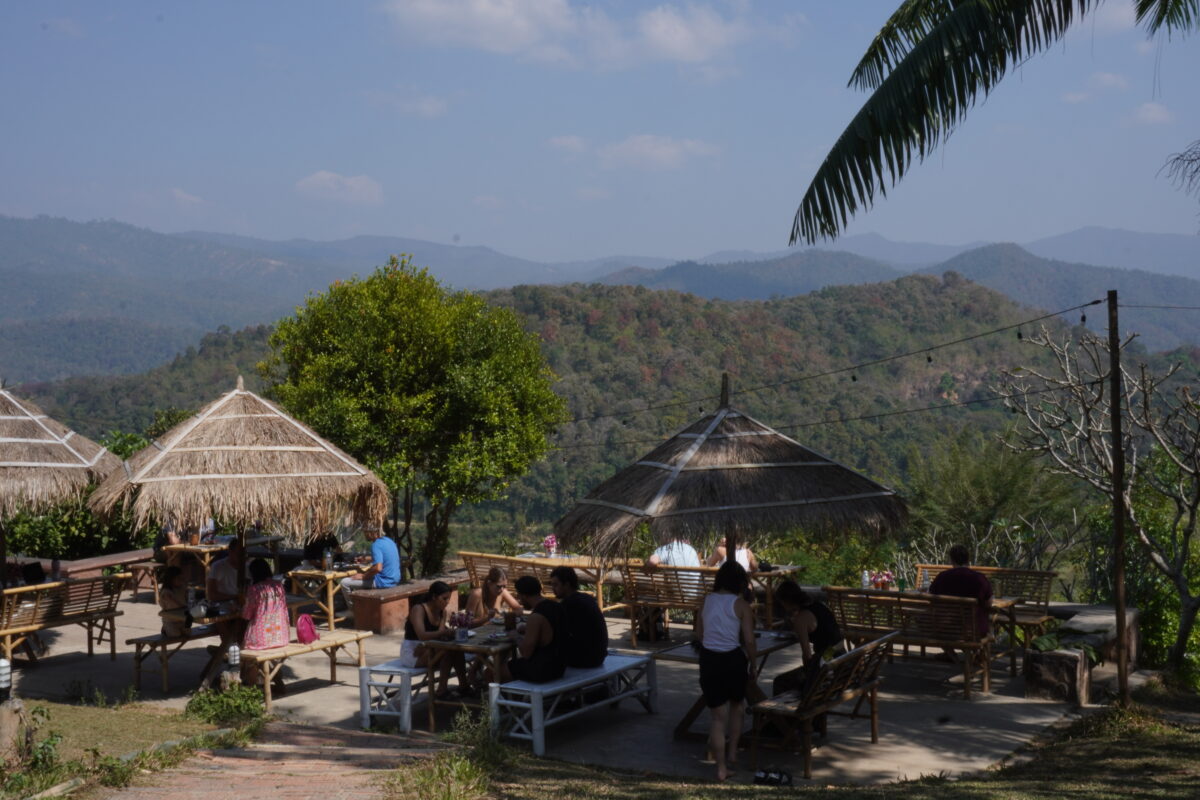
How are Chai Lai Orchid and Daughters Rising connected?
Hannah and I didn’t have any money. Half of our friends were working in restaurants. She was an artist at the time. Now she’s a professor in New York and still an artist. But yeah we didn’t have any friends that had money so we couldn’t ask for donations. So, we thought a social business would be the easiest way and the most sustainable way to fund our work. Chai Lai Orchid is our social business. And after we pay for the staff and the cost and the food and care for the elephants, then our proceeds fund Daughters Rising.
Were they started at the same time?
We started Daughters Rising before Chai Lai Orchid and we were supporting other students in other countries in Cambodia and in Nepal. But then when we really started Chai Lai Orchid we focused everything in Thailand. Because basically, I never leave.
[row_inner_4 v_align=”middle”] [col_inner_4 span=”6″ span__sm=”12″]A lot of these tours in Chiang Mai will advertise to be a sanctuary or ethical and what is it that Chai Lai Orchid does that makes it an ethical option compared to the other ones that some people may go to?
We rescued elephants from the camps where they have to do riding like carrying people on the heavy metal chairs on their back which can injure them. And it’s not just that the elephants have a good life it’s that the people have a good life. So, we ensure that the mahouts have access to their rights and that they get paid fair wages. If they’re from Myanmar they keep their passport. There’s no controlling their movement. So, it’s really holistic. And if the elephants caretakers are treated well and happy it also ensures that the elephants are going to be happier and treated better.
[/col_inner_4] [col_inner_4 span=”6″ span__sm=”12″]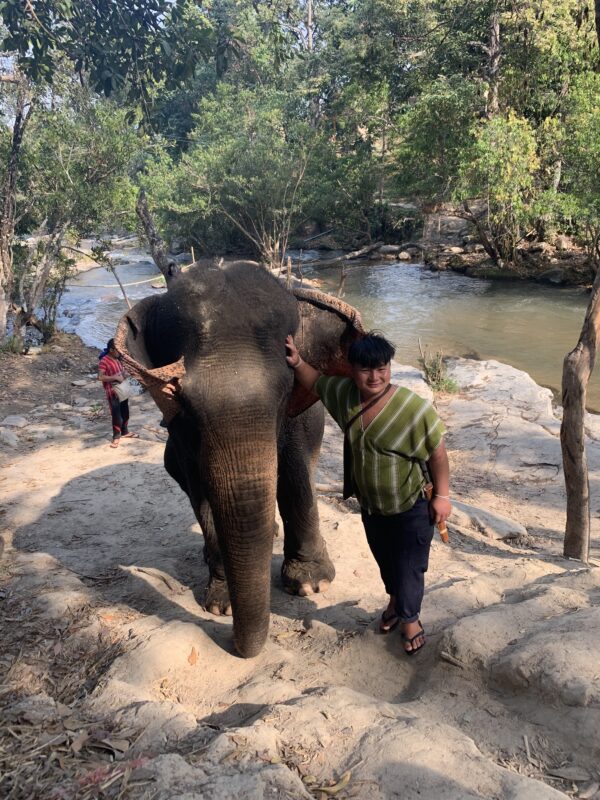
What are some things that are seen as the harmful ways that elephants are treated that people should be mindful of when looking for an elephant activity?
I think it’s really hard to see from an outside perspective. You have to really know the places behind the scenes. I would say one of the things that we found is really successful- we don’t own any of the elephants. We pay for the families who own them to take care of them. That way they don’t have to rent out their elephants to a big camp that’s exploitative that’s trying to make as much money per hour as possible. Because then that camp might try to skip on food or make them work even when they need time to rest. So empowering the actual current owners to take care of their elephants ensures that they’re going tot get the best care.
Are the mahouts their owners?
They’re usually a member of the family. Usually, the elephants don’t have a single owner, like several families in the village will support one elephant. And an elephant being in a camp then supports all those families + pays for the elephant’s food.
[/col_inner_4] [/row_inner_4] [row_inner_4 v_align=”middle”] [col_inner_4 span=”6″ span__sm=”12″]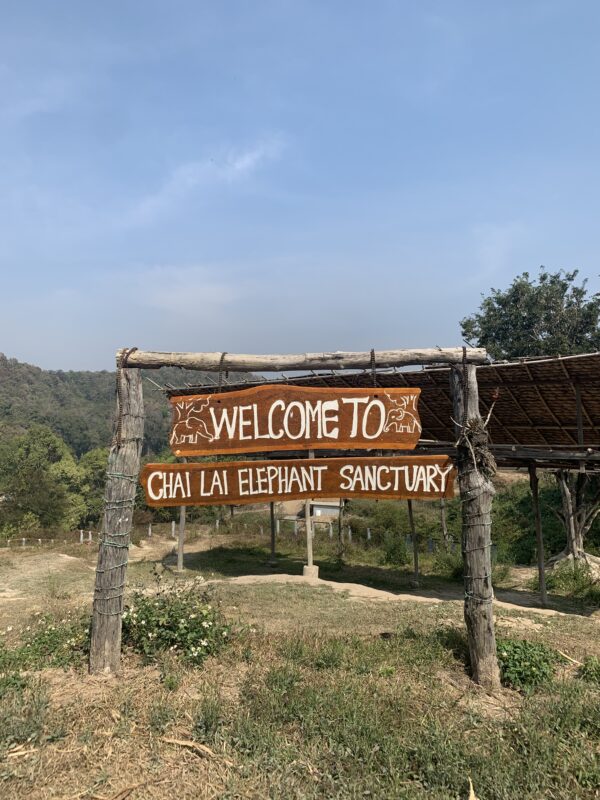
The bungalows that people can rent- you have mountainside and riverside. Are they owned by people in the village and Chai Lai rents them?
Yes. So these(mountainside) were already built but the riverside ones, we constructed it for the family and paid for everything. We built the huts in the style of traditional Karen houses and then we pay the family per night for renting them.
The cool thing- something that I’ve found to be really like something that I would want to support and I want other people to know is that all of this is actually going back to support the local community vs. sometimes resorts will come in and take over local land.
Yeah, and those resorts will have headquarters are in Bangkok or in London or Singapore and all of the profits actually go back to there, not to the community.
[/col_inner_4] [/row_inner_4] [row_inner_4] [col_inner_4 span__sm=”12″]Right and it’s taken land and resources away from local people and something that I would really, really like people to know is that that’s not the case here. As far as I’ve gathered.
Yeah, I think that’s what I’m most proud of with the project. Is that every Baht that people spend here actually helps the community.
It is an oasis and it’s peaceful. So many people say they could just relax here for days. I wish everyone could come but I also want to recognize that it can be expensive for people to get to Thailand so it’s not possible for everyone. How can people support Chai Lai Orchid or Daughters Rising from afar?
If people can’t visit, they can donate to support a student to go to university. Or for no money at all, just sharing and raising awareness about the cause/about the issues.
[/col_inner_4] [/row_inner_4]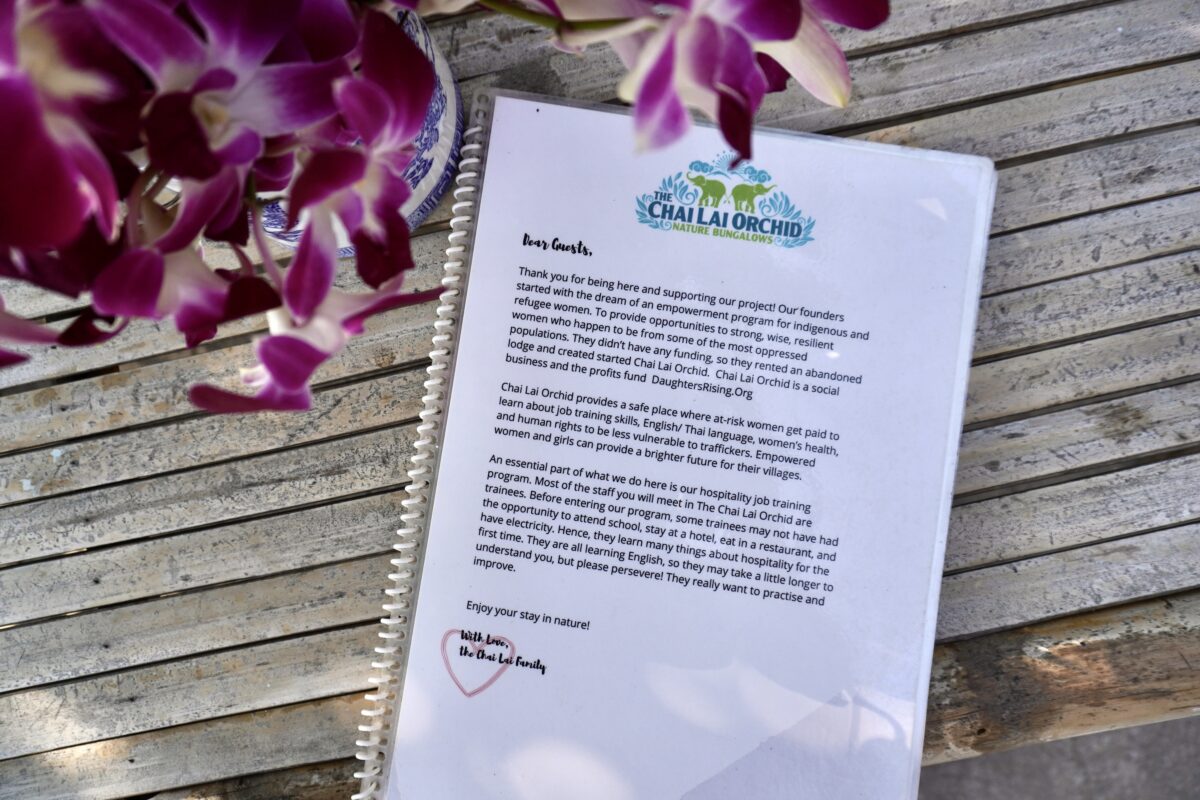
I’ve been volunteering here on the writing and media side, but what are some other ways you’ve had people come and volunteer?
We want people to share their passion. So, we’ve had chefs come and teach how to cook their favorite dishes. We have a volunteer coming from South America who is a designer who is going to be teaching the girls how to develop a product. Working with the indigenous weavers on like how to mood board, how to do your colors, and all the way through marketing it. We want people to volunteer what they’re passionate about. We also can work with remote volunteers.
Have volunteers ever come and done the workshops that you do? I know you’ve done some workshops with kids house. Is that volunteers or is that usually people directly from the community?
Sometimes it’s volunteers. We have 3 female lawyers coming to talk about female rights this month and speak to women in the village.
[row_inner_5 v_align=”middle”] [col_inner_5 span=”6″ span__sm=”12″]How many girls have you been able to support through scholarships?
More than 30 this year. During Covid it was only like 17 students in university because we didn’t know if we were ever going to have money again
And how did you operate during that time?
In the worst of times, we did foraging and looked for plants we could eat on the side of the river. Because there were times when the villages were totally shut down. Luckily, everyone here comes from very sustainable villages, so everyone is very useful.
When were you able to start doing tours again?
Last summer it started to pick up again. We were officially allowed to open in January 2022. There weren’t many people coming to Thailand. Thailand was totally closed. We thought a social business in tourism was the lowest hanging fruit because there’s so much tourism in Thailand and we never imagined it would just stop from one day to the next. And then when it was happening, we were like, no this can’t be and it certainly can’t be longer than like a week, two weeks…and then it went on for like two years. I think that just surprised everyone.
[/col_inner_5] [col_inner_5 span=”6″ span__sm=”12″]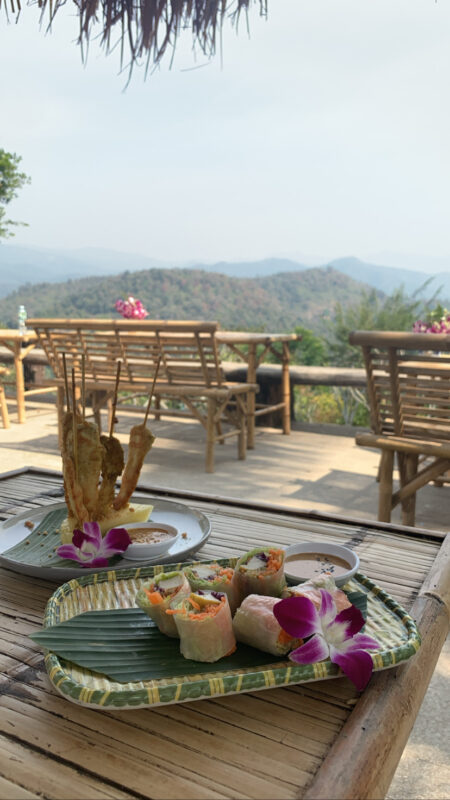
It’s interesting to hear exactly how it affected people around just so differently.
Well, this village doesn’t have any other industries. There’s no shop that you can get a job at. So, in rural areas everyone lost their jobs. Here, the elephants had no food. Charlie and his brother (mahouts at CLO) were planting grass all day to plant grass for elephant food. They eat 200 kg a day. The drivers, the tour guides, the housekeepers. Everyone here works in trekking and hospitality. There aren’t any other industries. So, it was devastating.
Were the elephants able to eat enough?
Yeah, the elephants were fine. We actually took on other elephants that were kicked out of places that call themselves sanctuary.
I was reading in your info book earlier that a sanctuary would be a place that is truly away from people. But there are places that will advertise to be better than they are. And that’s scary to me. You see them on every street corner in Chiang Mai and so a lot of people don’t think “oh well are the elephants being treated fairly?” So, I would like to be someone who can say “well, this is somewhere you can go that your money is being used towards good things always.”
It’s really hard to know because there’ might not be the same laws in different countries about marketing and ethical marketing. What I wish that people would look at is even the bigger picture that elephants shouldn’t have to be in sanctuaries at all. We’ve completely decimated their habitat and that’s why places like this even exist. There’s an even bigger problem. And people don’t think about it. Like it might more be harmful to their consumption of palm oil than if they go to a camp that is touching elephants vs. not touching. This is not the ideal situation. The ideal situation is that their habitat would be preserved. But there’s other lifestyle changes that people could be making for these concerns.
[row_inner_6] [col_inner_6 span__sm=”12″]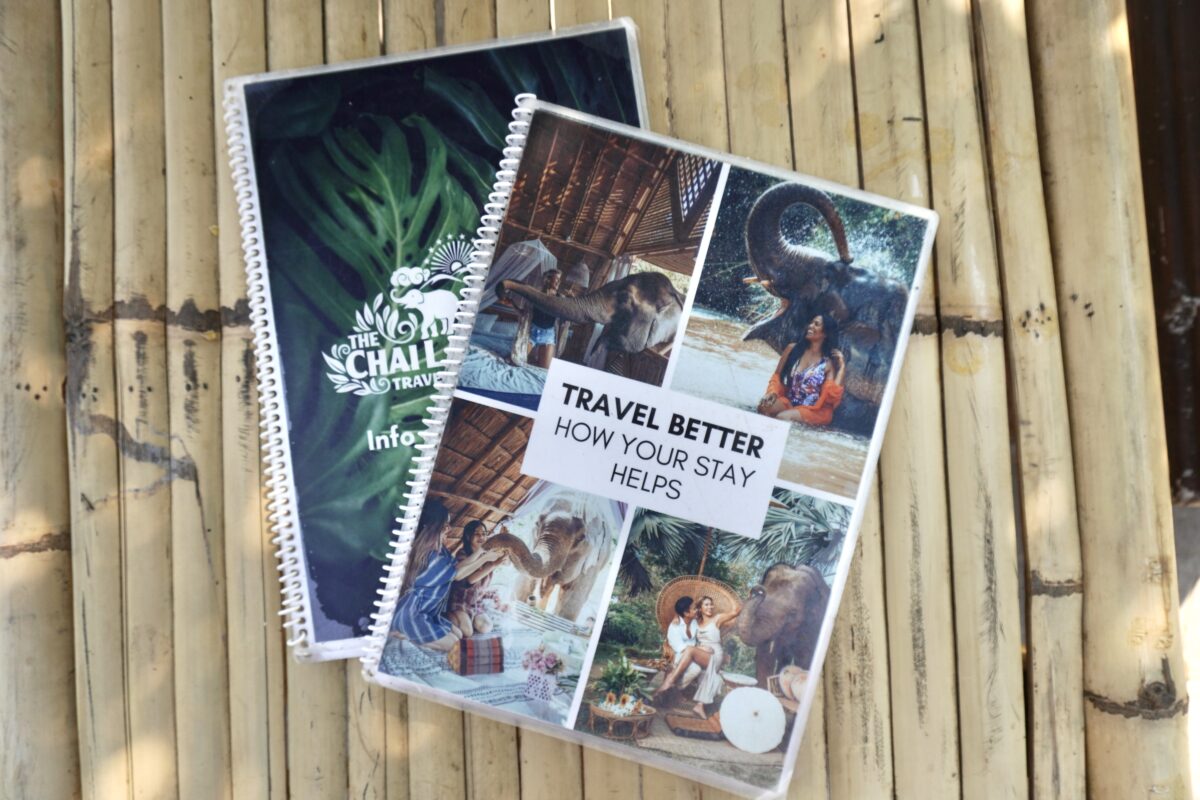
Is there anything you would like people to know about or add about Daughters Rising or if they visit or Chai Lai Orchid?
Just that people shouldn’t only think about their own experience when they travel. Think about the impact that your travel has on the community. Is it benefitting vulnerable people? Is it possible that you’re adding to exploitation? Is It necessary to haggle with people that are coming from a very difficult socioeconomic background? Would you do that to a taxi driver in your own country? People think “Well, that seems expensive for Thailand.” even though that’s a fraction of what you would pay in your country. I think there’s this logic like people here are poor they don’t need as much but no. Everyone is entitled to a life of dignity and fair wages. It’s cheap because it’s built on labors from Cambodia and Myanmar. There’s a lot of paranoia with western travelers that they’re getting ripped off. But petrol has also gone up here, just like it has in the states and that means the rate of a taxi driver has also gone up and for some reason it seems to not apply to people when they go on holiday.
For Visitors
At our café for 40 baht you can buy a meal for one of the kids on the refugee camp. One of the students from Daughters Rising graduated and now she’s the director of a school where they help kids to get high school and GED. She said some of the kids can’t really learn because they’re hungry. It’s hard for them to focus and it’s hard for them to remember things. So, you can buy a “share a meal” for 40 baht. You can add it to your bill.
I just want to tell you, that I’ve spoken with quite a few people this week and the staff around here. On multiple occasions they have mentioned that they really look up to you, you have a big heart, and you’ve done such important work. People really value what you do. I know you work a lot and it pays off because its changing the world.
They deserve it. I don’t know. I don’t think its like “so special” its just doing the right thing and putting people before profits.
[/col_inner_5] [/row_inner_5]Thank you, Alexandra for the incredible work you do. We are so excited to shine a spotlight on you. For more information, visit Daughters Rising and Chai Lai Orchid.
[/col_inner_4] [/row_inner_4] [/col_inner_3] [/row_inner_3]
